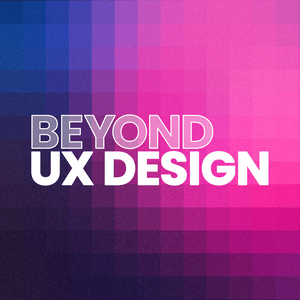The Toxic Myth of the Seat at the Table With Rashmi Lopez
Designers are told to climb ladders and fight for influence, but what’s the cost? Rashmi Lopez shares why she walked away from the corporate chase, how burnout stole her joy, and why community, creativity, and mental health are better markers of success than any leadership title.What if climbing the ladder to a “seat at the table” comes at the expense of your health, joy, and sense of purpose? Would you still want it?Corporate design culture pushes us toward one version of success: titles, promotions, and that coveted “seat at the table.” But for many, that seat comes with exhaustion, burnout, and a nagging question—why doesn’t this feel like success?In this episode, I talk with Rashmi Lopez, a designer who hit that wall, realized the cost, and chose another path. After years of grinding in tech and reaching leadership roles, Rashmi found herself drained and disconnected. A layoff became her turning point, leading her to step back, heal, and refocus on helping small businesses tell their stories with design.We explore how to rethink career success beyond titles, why boundaries and mental health are non-negotiable, and how community can give you more influence and fulfillment than any corporate ladder. If you’ve ever felt trapped in the cycle of overwork and chasing validation, this conversation will give you permission to define success on your own terms.—Thanks for listening! We hope you dug today’s episode. If you liked what you heard, be sure to like and subscribe wherever you listen to podcasts! And if you really enjoyed today’s episode, why don’t you leave a five-star review? Or tell some friends! It will help us out a ton.If you haven’t already, sign up for our email list. We won’t spam you. Pinky swear.• Get a FREE audiobook AND support the show• Support the show on Patreon• Check out show transcripts• Check out our website• Subscribe on Apple Podcasts• Subscribe on Spotify• Subscribe on YouTube• Subscribe on Stitcher


